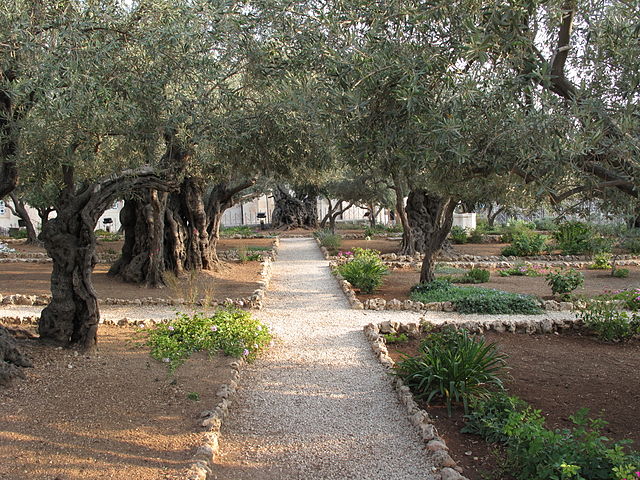How to pray in your darkest ever moments

On one of the worst days of my life I strode out of the house and over the hills.
It was summer. The sun was warm and pleasant, the sky was a pleasingly deep shade of blue and there was a gentle breeze.
But although it was such a beautiful day, I felt shrouded in darkness as I walked. The relentless pressure from seemingly impossible circumstances was taking its toll. I felt like the poet Gerard Manley Hopkins who once wrote: 'O the mind, mind has mountains; cliffs of fall – frightful, sheer, no-man-fathomed.'
The agony of Jesus in the Garden of Gethsemane as he faced the imminent prospect of his own crucifixion must have been far worse of course. And yet – somehow – in that valley of the shadow of death, Jesus managed to pray.
As we continue our fortnightly pilgrimage through Mark's gospel we stand upon holy ground as we see Jesus throwing himself on the earth (Mark 14:35) and praying in agony. What can we ourselves learn from how he prayed?
1. He asked his friends to support him. Mark notes that Jesus takes with him Peter, James and John (v33) – no doubt because he wished for their company and their help. But he quickly found out – when his friends fell asleep – that they could not be relied upon. And we, too, may rightly seek help from others. But we also may do well to remember that even the best-intentioned human friends may let us down in our greatest time of need.
2. He spoke intimately with God. 'Abba, Father,' Jesus begins his prayer (v36), using the Aramaic word which always denotes intimate affection and devotion. Jesus remembered that however painful his situation was, he could speak to God not as some distant impersonal force and still less as a hostile, uncaring deity – but rather as his heavenly father. And so can we.
3. He remembered God's sovereignty. The first thing he says to God is, 'For you all things are possible'. We can only pray because God is sovereign – God is the King who reigns. Ultimately God is in control – even when evil seems to have the upper hand, we don't understand what he is doing and it is incredibly painful. It is the recognition that with God all things are possible that drives us to prayer in the first place.
4. He said what he wanted. 'Remove this cup from me' is what Jesus boldly asks. That's quite a request. On one level it is perfectly understandable: no-one would want to go through the excruciating pain of crucifixion. On another level, it is the salvation of the world about which we are talking here and yet – extraordinarily – Jesus is able to say clearly that he would like the cup to be removed. I can see no reason why we cannot be completely open and honest with God about exactly what we would like too.
5. He submitted himself to God's will. Having stated what he wants, Jesus then adds: 'Yet not what I want, but what you want,' (v36). True prayer always seeks to align itself with the will of God, recognising that, 'As the heavens are higher than the earth, so are God's ways higher than our ways and His thoughts than our thoughts,' (Isaiah 55:9).
It's sobering to realise that the answer to Jesus' prayer was 'no'. The cup was not removed from him. Our agonies will never approach his, for none of us will have to bear the sins of the world. And yet as Tom Wright comments: 'If even Jesus received that answer – no – to one of his most heartfelt prayers, we should not be surprised if sometimes it's that way for us too.'
My prayers on the hills on that bleakest, darkest sunlit day were not answered with a 'yes' at once either. And yet, looking back, I can see God was doing things I could never have imagined at the time. Moreover there have been times since when I have seen God answer prayer with breath-taking specificity in wildly improbable ways. Prayer is not about putting money in a slot machine and getting chocolate out of the bottom. It's about a relationship with a God who may well take us through pain to accomplish things well beyond our mental horizon.
As Robert Velarde has written: 'When Jesus prayed in Gethsemane, "Yet not as I will, but as You will," He offered a tremendous but seemingly simple insight into prayer: God is in charge.' And so as I go through my day today I pray simply: 'Lord, keep me in the centre of your will – even when I don't know what it is.' Amen.
David Baker is a former daily newspaper journalist now working as an Anglican minister in Sussex, England. Find him on Twitter @Baker_David_A The Rough Guide to Discipleship is a fortnightly series.











